|
1 Comment
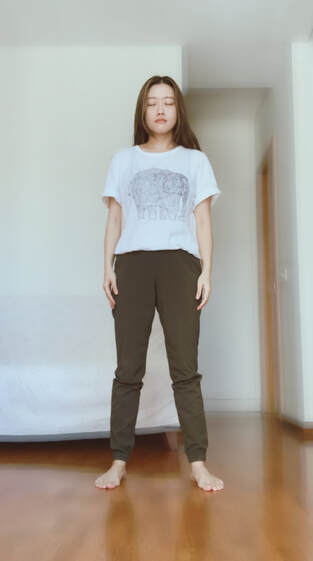 Happy Earth Day 2020! What is our relationship with Mother Earth? What could we be more conscious of, in protecting this very planet that keeps us alive? Even as we stay home, it is possible to stay connected with the Earth, by way of our body. If we look closely inside ourselves, we will know that our body is not separate from the Earth, and instead is a part of it. In a way, we are this Earth, and this Earth is us. Please join me in a short and simple practice of grounding to the Earth. It is best to do this barefoot. 1. Adopt a stable standing posture, with your feet hip-distance apart. Keep your posture upright and wakeful, and allow the shoulders to relax. 2. Become aware of the space around the body, and get a sense of the entire body breathing in and out. 3. Rest your attention at the top of the head, then bring your attention down gently through the length of the body, and all the way down to the bottoms of the feet. 4. Notice the soles of the feet in contact with the floor. Pay attention to the toes; the ball, arch and heel of each foot; the texture and temperature of the floor; the weight of the body resting on the feet, and the feet resting on the ground. 5. After a few moments, take a deep breath in, and exhale. If you're staying home a lot now and thinking about meditating more consistently, here are three things that have worked for me:
1. SPACE Find the most conducive spot at home for meditating in, set it up, and stick with it. Overtime you'll gradually settle into that space, and before long you'll find yourself looking forward to returning to "your spot". 2. POSTURE It takes time to figure out a posture that works for you, so don't fret if you feel fidgety or keep falling asleep at the start. Keep your posture as upright and wakeful as you can without straining the body. Don't worry about twisting your legs into a full or half lotus - your posture just needs to be stable. 3. ROUTINE Consistency is more important than duration for a start. Aim to establish a daily routine. We're trying to get the mind and body used to resting in stillness, and practicing once in a while isn't going to change that. Begin with a shorter duration, say 10 min a day, and gradually build it up to 15, 20, 30 min. By the way, you may not need special meditation cushions. I gather whatever cushions I have at home and arrange them in a way that works for my body. If you already have a regular practice, what has worked for you? Share your wisdom! First published via LinkedIn Pulse. Read Linkedin Article. Growing up in a relatively conservative culture, whereby almost every decision I made or every action I took had to be approved or answerable to an authoritative figure or a social ideology, I remember how much I used to crave freedom. I loathed unnecessary criticisms, baseless judgments, and unfair expectations. My own personal time and space became sacred, and I indulged myself in an inner world of fantasy every chance I got. My biggest dream was to be able to run away some day, to a beautiful place - perhaps a place I could call my own home - that would grant me full independence and the liberty to self-govern. I felt immense power just fantasizing about a completely unrestrained self, basking in this self-defined identity of being free. I held on to this reverie throughout my teens, twenties and early thirties, and unknowingly allowed it to guide the course of my life - my work, my relationships, and my worldview. Of course, the world around me continued to function in an entirely different way, and I often wondered if the bubble I had wrapped around myself served to protect me, or sink me deeper into the illusion that I could be free. The more I struggled with being controlled or limited, the more tightly I held on to my perceived need for freedom. And then meditation happened. Important discoveries often come to us in the most unknowing ways, when we least expect it, and when we do not anticipate. Upon parting with an almost decade-long corporate portfolio, I signed myself up for a ten-day Vipassana meditation retreat, and went through one of the most excruciatingly painful experiences I had encountered in the first three decades of my life. We were invited to sit for one hour without changing our posture, to practice strong determination in the process of observing ourselves. While the intention of the practice was definitely not one of self-torture, the over-achiever in me couldn't help but take up the "challenge" in its entirety, and for the full one hour I never moved an inch. As the drilling pain grew exponentially in my legs and shot through the full length of the spine, I instinctively threw myself back into my bubble of freedom, hoping that my power of imagination would take me far, far away from the reality of the pain. But my bubble didn't offer the relief it usually would. If anything, the pain only magnified. I was desperate to be free of this pain. I silently screamed over and over again in my head, My legs! My legs! Stop this pain NOW! as tears rolled uncontrollably down my cheeks. Even though I was certain I appeared absolutely unmoving and composed on the outside, the internal battle was raging. My bubble started to press in on me, challenging each and every byte of reliance on escape I had stored in my consciousness over the years. The meditation practice was all about self-observation, and the essence of observation is to pay attention without being caught up in whatever we are observing in the moment. When we observe, there is no need to do anything. We learn to take a step back and simply watch, with curiosity and patience. Moment by moment, as I learned to observe my own body and mind, my muscles loosened and relaxed, my bubble started fading away, and the angry, relentless chatter in my head gradually subsided. The painful sensation was still there at my legs, but strangely it was no longer bothering me so much. For the rest of the hour, I sat with an ease I had never experienced before, even though I was in full confrontation with the reality of my experience. Was I free? It certainly felt so. In the middle of deep turbulence, there was no room for escape, and yet freedom found me. It took me over thirty years and a somewhat intensive meditation experience to bring to light what freedom - a core value I had aligned my life with - truly means. Escape does not really bring freedom, much like how chocolate doesn't bring lasting comfort, or how working out at the gym doesn't increase our self-worth. And yet escape seems to be the only means to freedom that the modern world is currently encouraging. My struggle for freedom amidst pain was at best a form of distraction, and at worst, a multifold intensification of the pain. When we don't like the pain we feel inside, we tend to seek out something outside of us for some relief, not realizing that the unpleasantness really comes from within. But when I chose to direct my attention inwards to gently observe my pain, I was able to find freedom in the pain right there and then. Since then, I have been consciously reminding myself of this insight with almost every physically, mentally and emotionally painful experience that comes my way. From hectic schedules, professional blunders, ruminative thoughts and moments of self-doubt, to difficult relationships and the stress of being a caregiver, I practice turning my attention inwards, remaining mindfully aware of the pain that comes, learning not to invite it for a stay, and then watching it eventually change and fade away. With each painful experience that arrives, the practice begins. And with each moment of practice, comes a moment of freedom. Today, freedom remains my top core value, guiding me in every decision I make. But I no longer regard freedom in the same way as before. Rather than running away, I intentionally choose to turn towards. Rather than wishing for things to be different, I learn to be at ease with what is. In the absence of futile struggle, there is freedom to be found in every moment of difficulty, and even in every step and breath I take. Without a doubt, this takes a lot of practice, but I am inclined to make this practice a lifelong one. Connect with Erin, because she would love to practice mindfulness with you. Do give a like, leave a comment, or share this article if Erin's words resonate with you!
In The Mindful People Series, we interview people from different walks of life and get them to share their mindfulness experience, as well as how learning and practicing mindfulness have made a difference to their personal and professional lives. MiMo: How did you get into learning and practicing mindfulness? Eileen: I have always been curious about why people practice mediation or mindfulness, since they always share the many positive outcomes and benefits from their practice. By chance I read about the MBSR program and went for the preview session, which led me to signing up for the program with the SkillsFuture credits available. I attended the MBSR program with an open mind and hoped to learn how the practice could help me improve both my daily and work life. MiMo: Tell us about your experience in the MBSR program. Eileen: It was an amazing 8-week journey, especially with the interesting sharing sessions among the participants. Everyone had somewhat similar and yet different outcomes from the weekly practices. I also enjoyed the mindfulness practices as there was no need to have a particular outcome from the practices. We simply practiced to explore how we could integrate both formal and informal mindfulness into our daily life. MiMo: How has mindfulness contributed to your personal well-being? Eileen: My biggest takeaway from the program is that it has helped me to become more aware of things around me and to learn to appreciate them. Instead of always having the need to engage with thoughts or physical sensations, I am learning to rest with them from moment to moment. I find the teachings on Stress Reactivity and Stress Response very beneficial as we learned that we have choices other than reacting negatively out of habit. MiMo: How has mindfulness supported you in your professional work? Eileen: I have found that I am always too quick to react and make judgements; and having learned and practiced mindfulness, I will now do my best to take a mindful pause before reacting and try not to be unnecessarily judgmental. MiMo: How have you incorporated mindfulness into your daily life? Eileen: Mindfulness in MBSR includes practicing in various postures in both stillness and movement, and hence it supports me in many aspects of my life. The movements practice has encouraged me to sign up for yoga classes for my long-term wellbeing, and I plan to incorporate mindful awareness during yoga practice. MiMo: Any words of advice for people who are thinking about learning mindfulness? Eileen: Go in with an open mind, learn the different practices and apply what works best for you. You will learn to appreciate things and people more and to not be too judgmental. You will learn how you are able to manage stress better and how to bring a mindful pause to break our reactive patterns, as well as change our relationship with stress.  About Eileen Foo Being a HR Practitioner with an MNC in retail requires me to work with both internal and external clients from different parts of the world. We need to be aware of the different work and personal cultures so as to build trusting and good relationships. I always do things with an open mind by accepting changes as part of life's process, and I believe that change is always for the better. My personal interests have evolved over time and I am now more focused on developing my personal wellbeing both physically and mentally; I believe that having a healthy mind is just as important as having a healthy body. Traveling is my biggest love and I am now exploring more off-track places as well as challenging activities during my travels, such as caving, water rafting and trekking. My belief in life is to have inner peace that will lead to happiness as well as a healthy mind and body. Are you a mindfulness practitioner or do you know one who would like to share their mindfulness experience on the MiMo blog? Do drop us a message!
In The Mindful People Series, we interview people from different walks of life and get them to share their mindfulness experience, as well as how learning and practicing mindfulness have made a difference to their personal and professional lives. MiMo: How did you get into learning and practicing mindfulness? Chris: In our mindless rat race, overtime, I have lost sight of what I really wanted in life. Stress and pressure were like adrenaline rush pushing me to do more and more. I just wanted to achieve as much as possible in the shortest time frame. The question is, to achieve what, and for whom? I was always in a hurry, irritable, and impatient. Finally my body gave up. I was hospitalised for a week. That was a wake up call. It started me on a journey to better care for myself. Eventually, I quit to join my then girlfriend who was working in Japan. I have been ‘unemployed’ ever since. But never been happier. I now realise what I want in life is very simple - to be healthy, happy, and to bring love and joy to those important to me, amid with a certain level of material comfort. However, there is something still missing. Maybe it was the years of stress that altered my brain, or maybe I was born like this, no matter what I do, however hard I try, my mind is always churning, ruminating with endless self conversation. My anxiety which I had always thought to be normal simple nervousness was causing my medical condition to flare up. It was also wreaking havoc with my brain and my ability to handle situations. I was introduced to breathing exercises and daily morning walks which really helped. It piqued my interest for a more comprehensive formal system which I found in MBSR. Amongst the many types of mediation, I preferred MBSR for its secular based approach backed by firm scientific basis. It seemed like a perfect fit, the last piece of the puzzle in my pursuit for happiness. MiMo: Tell us about your experience in the MBSR program. Chris: It was a great learning journey. I was looking forward to our weekly session and the 1 day silent retreat was especially beneficial. After each session I felt recharged and calm at the same time. It was a great way to end the week and start the next. Erin was very supportive and knowledgable, providing a safe and comfortable environment for us to share and express any concerns or queries. Each session moved according to our pace, never too rush, never too slow. MiMo: How has mindfulness contributed to your personal well-being? Chris: I feel more calm, less anger, less anxiety, and perhaps most importantly, I am able to better control, sometimes even stop, the endless ruminating thoughts/conversations in my mind. I feel a lot more in control of my thoughts and emotions. I’ve learnt and realise how I can either allow myself to be upset and angry, and then exhausted, or to simply notice the antagoniser and not engage it or allow it to affect my emotions. I think one of the few more immediately obvious example, for me, is when I am driving, I am no longer as bothered by all the impatient inconsiderate drivers on our roads. I’ve learnt to let it be and not engage it and allow them to affect me. Driving has become a lot more peaceful. MiMo: How has mindfulness supported you in your professional work? Chris: I have chosen a very different path from many others. Being different brings about many self-doubts. Did I make the right choice, am I on the right path, will I regret later. All these doubts are further amplified when my peers have all progressed so much, climbed the ladder so high. It is not so much of envy, but the fear of regretting, especially when it is increasingly becoming too late to turn back. All these self doubts take precious time away, it affects my concentration, lowers my productivity. With mindfulness, I am better aware of what my mind is up to, and how I should handle it. The various exercises I’ve learnt are very useful in bringing my focus back to the present. Now, when I am tired, distracted, procrastinating, or simply just bored, I try to either do a short sitting or movement exercise. It helps to reset and refresh my mind. MiMo: How have you incorporated mindfulness into your daily life? Chris: I am slowly making mindfulness a part of my life and routine. I try to start and end my day with a sitting exercise. During the day, when I sit too long in front of the computer, I try to incorporate mindfulness into simple yoga stretching exercises to loosen up a bit. Whenever I am tired, stressed or anxious, I will do a short sitting exercise. I try to squeeze in some form of mindfulness whenever possible, like when I am walking or when I am on the bus. The only mindfulness practice I still have problem doing is mindful eating. That is still a bit of a challenge for me. MiMo: Any words of advice for people who are thinking about learning mindfulness? Chris: I would say give it a try with an open mind. Some might accept everything without any problem, others might have many questions. For me, I have many questions for which I am slowly seeking answers for. Having questions is not a bad thing. It merely signifies the start of your journey into mindfulness and meditation. I started wanting to learn how to meditate using the MBSR approach, along the way many questions came about. Erin patiently explained as much as she could. There are still many areas I do not quite understand. Truth is, the course might not be able to answer all your questions. I don’t think it is meant to do that. It is merely to start you on a journey and equip you with the questions which with practice and time, one will hopefully find the answers.  About Chris Quek In servitude as Chauffeur, Personal Chef, Nutritionist, House-keeper, Holiday-planner and Investment Consultant to my wife. In between down time, I try to make some spending money trading the market, and selling stock photos since I do not get much allowance. When time permits, I revert to my primal self - nua-ing (lazing around) and stoning. I can be found staring into blank space almost anywhere. Now I will do it mindfully. Are you a mindfulness practitioner or do you know one who would like to share their mindfulness experience on the MiMo blog? Do drop us a message!
In The Mindful People Series, we interview people from different walks of life and get them to share their mindfulness experience, as well as how learning and practicing mindfulness have made a difference to their personal and professional lives MiMo: How did you get into learning and practicing mindfulness? Wanyin: I had been hearing about the benefits of mindfulness via FB and in the news, and was keen to learn something new. With so much going on at work, it's hard to "switch off" after work and I was hoping that mindfulness could help with that. MiMo: Tell us about your experience in the MBSR program. Wanyin: The practices were simple to follow, and not as complex as I had envisioned before the programme started. The challenge was to find the discipline to keep up with the daily practices, and being deliberate about applying what I've taught as I go about my usual routine. What I really found useful was the realization of how a 10-min breathing exercise was able to help me better focus and calm down. MiMo: How has mindfulness contributed to your personal well-being? Wanyin: Two key areas: firstly, mindfulness underlines the importance of staying grounded and focused on the present. Secondly, to have a greater acceptance towards myself and appreciation for impermanence state of things. MiMo: How has mindfulness supported you in your professional work? Wanyin: When faced with unpleasant encounters at work, I remind myself that things will not stay this way forever, and that feelings / events (both good or bad) will eventually pass. Similarly when dealing with my colleagues, I believe that being kind is a choice, and when faced with tense situations, you can actively choose not to react, but choose to respond kindly. MiMo: How have you incorporated mindfulness into your daily life? Wanyin: Using an app, I've been trying to alternate between a 20 min movements practice, and the 20/30min awareness of breath practice. When out with friends & family, I try to be present and centered so that I can enjoy their company fully. MiMo: Any words of advice for people who are thinking about learning mindfulness? Wanyin: Go for it. The practices aren't hard to follow. The challenge is to find ways to incorporate mindfulness into daily life, and to keep at it.  About Luo Wanyin Regular Singaporean who loves good food, and is constantly looking to travel beyond our little island to discover new places, gain experiences, and create happy memories. On top of all these, Wanyin is also working on incorporating mindfulness into her daily routine so as to be more present and grateful for all around her. Are you a mindfulness practitioner or do you know one who would like to share their mindfulness experience on the MiMo blog? Do drop us a message!
In The Mindful People Series, we interview people from different walks of life and get them to share their mindfulness experience, as well as how learning and practicing mindfulness have made a difference to their personal and professional lives. MiMo: How did you get into learning and practicing mindfulness? Lennan: My mindfulness practice began on the yoga mat. About 10 years ago I had a disc replaced in my neck and yoga not only helped in the recovery it helped with my fitness and strength and sleep and overall health in ways I never would have imagined. Yoga introduced my to meditation, but only in small, 5 minute whispers at the end of some of the classes. The stillness and centeredness brushed up against there made me wish to deepen my practice through more focused and intentional meditation program - and that is when one of my best yoga teachers suggested MBSR. MiMo: Tell us about your experience in the MBSR program. Lennan: Right from the first session I appreciated the thoughtful and intentional nature of Erin's class. She frames each session mindfully and guided us through each meditation in a way that was both accessible and expansive. As someone relatively new to meditation I felt very supported and safe and this environment allowed for real growth throughout the 8 weeks. I was not the best student and did not always find a way to bring the assigned practices into my daily routine, but whether or not I had a week where I practiced every day or merely once or twice - I felt there was always something to be gained every time I visited the mat. MiMo: How has mindfulness contributed to your personal well-being? Lennan: My own personal mantra is that the truest path to happiness is to do things that make you like you better. MBSR in general and more specifically for me, meditation is one of those things for me. What a book can do for my brain, or a run for my body, meditation does for my soul. It is simultaneously a soul quenching and soul wringing out experience which consistently leaves me with greater focus, clarity and peace. MiMo: How has mindfulness supported you in your professional work? Lennan: Anything that makes you a better person, inevitably makes you a better teacher. From allowing yourself to be a student for 3 hours every Saturday to sharing some of the insights in class with my own students, it is essential if one is to be a good teacher that one not only sees themselves as a student, but also allows their students to see them that way as well. Beyond that the focus on taking pauses to better measure responses is also a powerful tool to add to the teachers' toolbox. MiMo: How have you incorporated mindfulness into your daily life? Lennan: The most direct takeaway is probably in trying to be a more mindful eater. With the essential nature of eating well for a healthy lifestyle coupled with the ease to mindlessly eat and literally finish meals and look at an empty plate - especially at work - and not remember a single bite. Adding some thoughtfulness to that part of my life - even in small flashes at the beginning of a meal or slowing down in the middle of a meal has been helpful. MiMo: Any words of advice for people who are thinking about learning mindfulness? Lennan: I would highly recommend this enriching life experience as being potentially life changing and at the very least a powerful action in taking more control over your emotional and spiritual wellbeing. This is the first step in a journey towards better mental and spiritual health that should be embraced wholeheartedly and embarked on immediately. ------ About Lennan Macdonald Lennan has been teaching for over twenty five years in Singapore as well as internationally. He is a husband, a father, a brother, a son, a friend, a coach, a player (not that kind of player :), a yogi, a reader, a writer, a singer, a bad dancer, a big fan and an explorer of paths less traveled. Born and raised in Canada, he has spent the majority of his adult life in Singapore where he and his wife, Tracy, have taught some and learned much in both local schools as well as a few of the better international school's on the island. Are you a mindfulness practitioner or do you know one who would like to share their mindfulness experience on the MiMo blog? Do drop us a message!
In The Mindful People Series, we interview people from different walks of life and get them to share their mindfulness experience, as well as how learning and practicing mindfulness have made a difference to their personal and professional lives 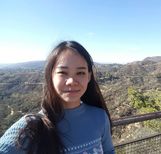 MiMo: How did you get into learning and practicing mindfulness? Sherry: I was given heavy responsibilities at work and dealt with stakeholders who demanded a lot of time and energy. I would start each work day feeling unrested and drained, and over time I had to summon a lot of self-control and use a great sense of responsibility to complete whatever I needed to do. Other challenges in life depleted my energy further and I needed to find a better and more constructive way to manage my stress and mental fatigue. After months of social isolation, I met up with a friend who benefited from Erin’s MBSR program so I started reading up about mindfulness and discovered that it was exactly the skills I needed to handle life’s challenges! MiMo: Tell us about your experience in the MBSR program. Sherry: Erin gave us weekly practices with guided meditation audio recordings to keep up with daily meditation. These weekly practices helped me to reflect on how I had been dealing with life and how I can apply mindfulness for better quality of life. When things were busy at work, it was tempting to skip practices but the MBSR program will be effective only if one makes the best out of these 8 weeks and follows the weekly practices closely. The Circle of Awareness to break the habit loops and Erin’s theoretical explanations about MBSR were most helpful to me as it clearly articulates the neuroscience behind why the MBSR program will work. The 1-day silent retreat was my favourite part of the program as it was only at the retreat that I felt like “I finally got it!” – I was better able to embrace the skills taught in the first 5 weeks and understood how meditation can be practised on-the-go, every day, every moment! MiMo: How has mindfulness contributed to your personal well-being? Sherry: Mindfulness has helped me to look inward and gain fresh perspectives about life’s challenges. It has helped me to reduce mental noise and break habits of cyclical thinking to be more present with life’s moments. I realized that the anxiety and worries in everyday life could be halted simply by being more aware of the present and to let things “be”, instead of doubting and judging whether things should be another way (in the past) or could be a certain way (in the future). I am able to build my natural resilience by acknowledging the present difficult situation with the help of mindful breathing and then calmly deciding my next course of action without unnecessarily depleting my mental (or physical) energy. I am also better able to appreciate the present for what it “is”. MiMo: How has mindfulness supported you in your professional work? Sherry: I am better able to manage my anxiety and be more open-minded to alternative approaches to issues at work. I can appreciate each moment better instead of constantly worrying about the next task. Whenever I encounter challenging situations or people at work, I am better able to re-centre my mind so as not to emotionally engage with the situation or person. I have also learnt to be less judgmental of my negative emotions and thoughts and acknowledge them instead of berating myself for having them. MiMo: How have you incorporated mindfulness into your daily life? Sherry: I do simple meditation practices daily to take a pause from the hectic work schedule and improve my foundation in mindful living. Instead of habitual cyclical thinking, mindfulness brings me back to the present moment and reduces my anxiety. It helps me to be appreciative of life and embrace its moments, to be kinder to myself so that I can extend compassion to others. Whenever I encounter a stressful situation, I am able to break the stress reactivity cycle through mindful breathing so that I can respond more constructively. MiMo: Any words of advice for people who are thinking about learning mindfulness? Sherry: Mindfulness reminds us to “be” as we are and helps us learn to accept life and its challenges as they come. We are caught up in “doing” things, searching for solutions by constantly analysing problems. Our minds are overworked and we feel unrested and continue this cycle either until we bounce back by seeking a change (which might or might not be helpful), or until we want to end our suffering. By practising mindfulness, we do not forget or escape from our challenges, and still need to face them and overcome them eventually, but we can handle stressful situations more constructively and not destroy ourselves in the process. By observing stressful feelings moment by moment and noticing things as they are, we can allow our minds to rest, then return to it when we are less emotional and more rational to handle it. ------ About Sherry Lim Sherry grew up in Singapore and has worked in the education industry for more than five years. Through her work, she seeks to understand how people learn, and why people are the way they are. She enjoys reading books and articles, particularly in the areas of neuroscience and psychology, to complement her work. She is an avid seeker of meaningful experiences and loves to learn new things across varied topics. She believes in balanced living and is self-motivated in doing at-home workouts, eating a variety of foods, and practising mindfulness in protecting one’s physical, emotional and mental health. Are you a mindfulness practitioner or do you know one who would like to share their mindfulness experience on the MiMo blog? Do drop us a message! Deep gratitude to Her World magazine for featuring Mindful Moments in their April 2018 issue, as well as for writing about why we should pursue mindfulness and how we can practice it daily!
|
About The AuthorMiMo founder Erin Lee is a Mindfulness Coach and MBSR Teacher at Mindful Moments, and advocate of mindfulness as the way of life. She conducts the classic 8-Week MBSR Program, as well as the 8-Week MBSR Workplace Program. Categories
All
ContributeAre you a mindfulness practitioner and have meaningful experiences or thoughts about mindfulness that you'd like to share? You can contribute an article on the MiMo blog! Please contact Erin to find out more.
Archives
June 2021
|
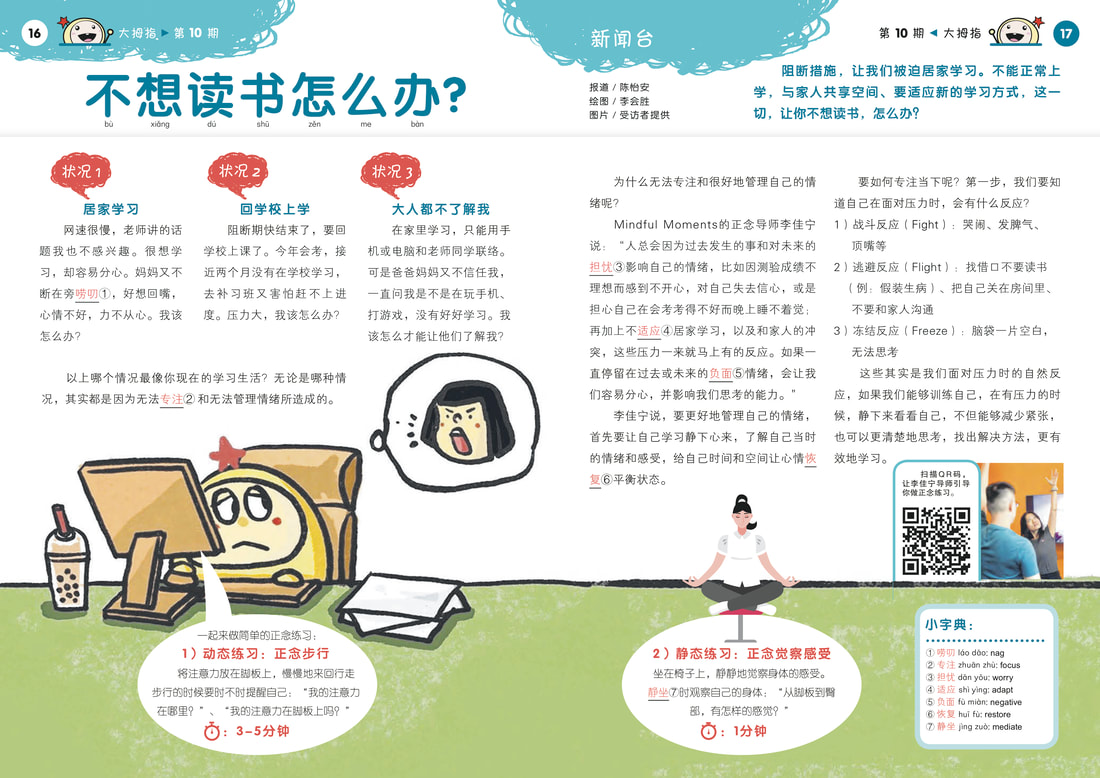
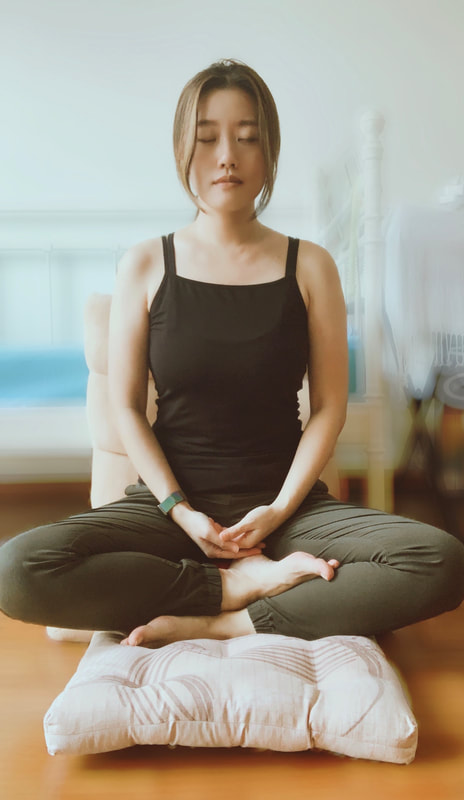
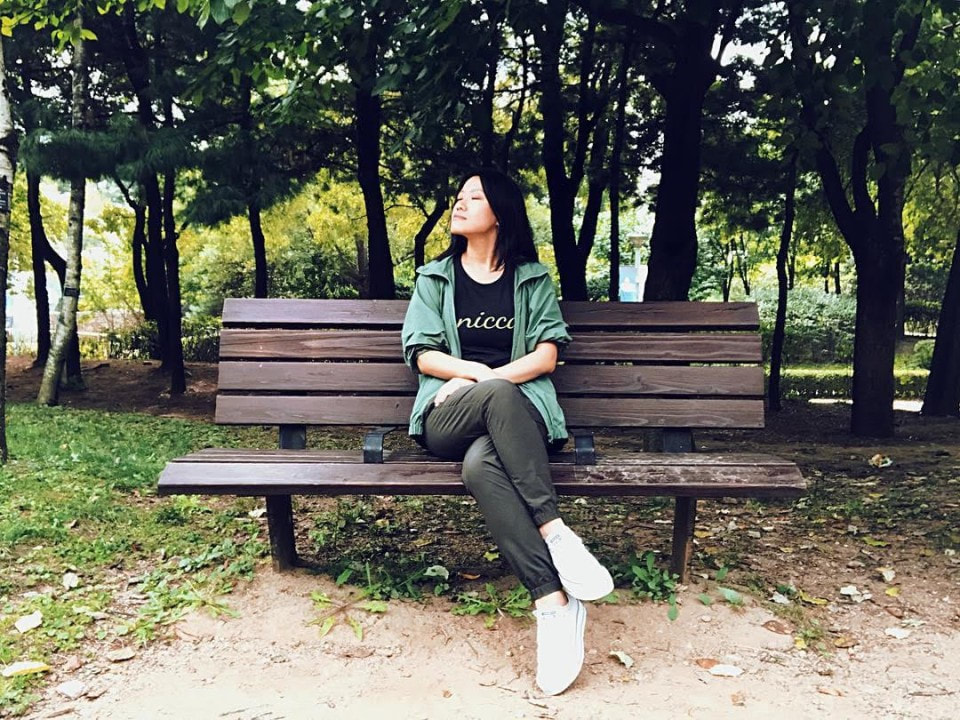

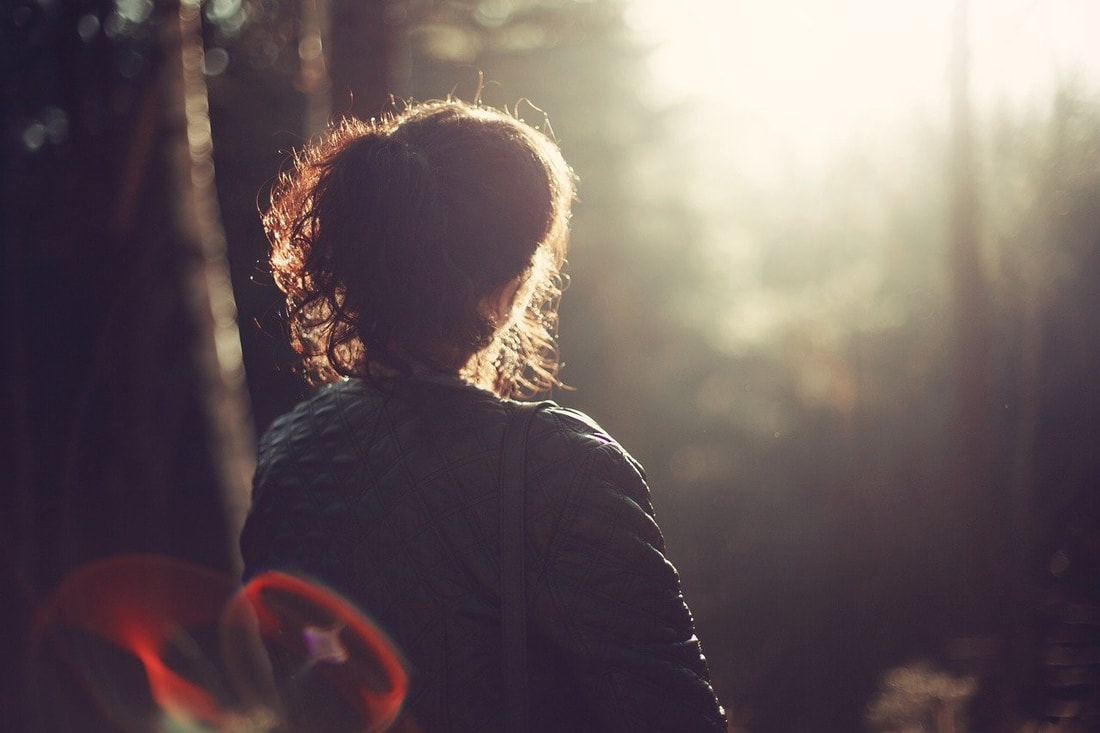







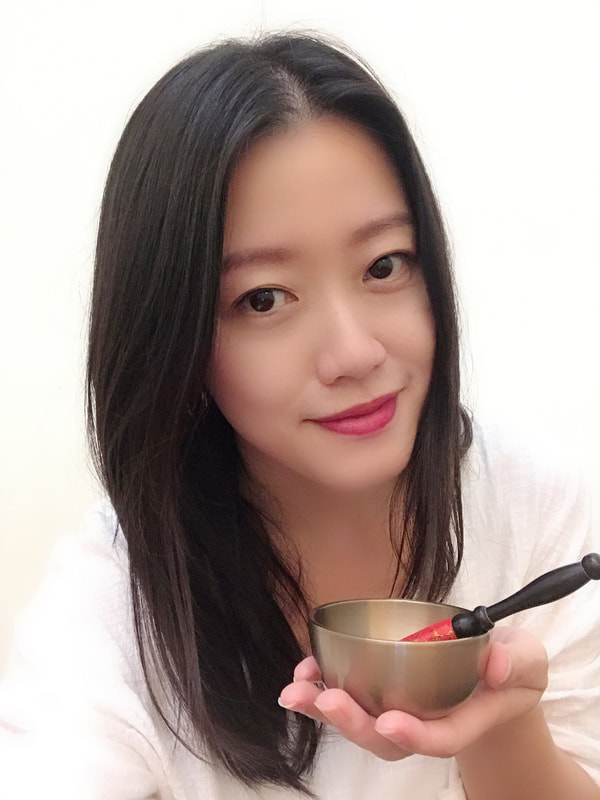

 RSS Feed
RSS Feed